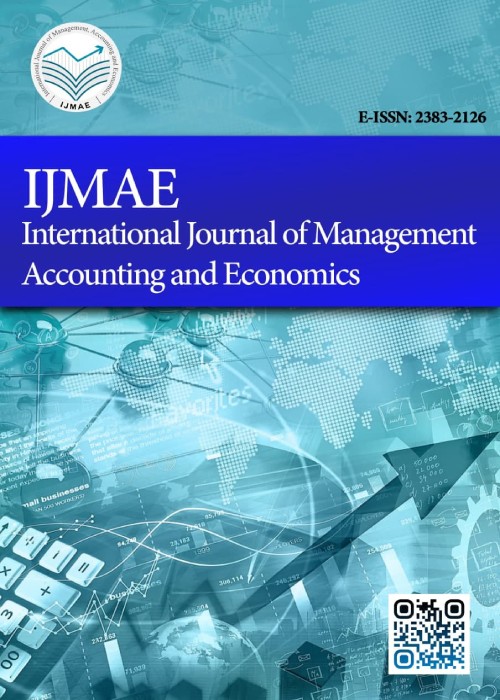فهرست مطالب
International Journal of Management, Accounting and Economics
Volume:6 Issue: 11, Nov 2019
- تاریخ انتشار: 1398/09/12
- تعداد عناوین: 4
-
Pages 770-779
This research study examined the impact of current and non-current assets on the profitability of pharmaceutical companies of Pakistan. For this study 9 years data was collected from the annual financial statements of six pharmaceutical companies listed in Karachi Stock Exchange over a period of 2010 to 2018. The profitability was measured by ROA.Current and non-current assets were taken as independent variables. The regression analysis was used and the result showed that current assets have a significant positive impact with the return on assets while the fixed assets have a significant negative impact on profitability of pharmaceutical companies of Pakistan.
Keywords: Current Assets, Non-Current Assets, Profitability, Return on Assets, Pakistan -
Pages 780-794
Most studies on board independence, board expertise, foreign board members and financial performance in Nigeria and other parts of the world showed different results with some showing positive, negative and mixed results. This study examined the effect of board independence, expertise and foreign board member on the financial performance of listed insurance firms in Nigeria. The population of the study comprises 26 listed insurance firms in Nigerian Stock Exchange and 17were selected as sample the size using random sampling technique. The regression analysis revealed that board expertise and foreign members have statistical significant effect on the financial performance measured by return on asset (ROA). Board independence has a significant effect on ROA but do not have significant effect on return on equity ROE. The study therefore, recommend that regulators must ensure that competent independent board members are well represented in the board of directors, and insurance companies should adhere strictly to the corporate governance code of conduct as it affects board expertise and foreign board members so to improve the quality of financial performance.
Keywords: Board independence, Board expertise, foreign board member, Firm Size, Leverage, Financial Performance -
Pages 795-830
The focus of this study is to identify the environmental disclosures made by Bangladeshi companies and analyze the overall disclosure practice of the countries’ industries. And also collect the investor’s feedback on whether or not environmental disclosure information is making a difference in their decision making process and their opinion about the company. For conducting the research, the study has used 5 sectors- Engineering, Pharmaceuticals, Food, Textile and Fuel and Power along with 10 companies with each stratum. This study has used the standard environmental disclosure index developed by prior researchers to show the volume of the selected companies’ environmental disclosures in the annual reports. To show the impact of the environmental disclosures on the investors’ decision, the study has conducted a survey among the investors. The study shows evidence that reinforces the fact that Bangladeshi companies are disclosing less environmental information than an ideal company should. Also there are lack of regulation and interest in disclosing proper information. Although by conducting a survey it was seen that majority of investors and probable investors are interested in these information and are supportive of eco-friendly companies.
Keywords: Environmental Accounting, Investor’s Decision, Bangladeshi Industries, Content Analysis, Annual Reports -
Pages 831-843
This paper examines the effect of ownership structure on working capital management of listed Downstream Oil and Gas Companies in Nigeria. The study uses panel data for eight (8) companies for the period 13 years (2005 – 2017). There are several aspects and dimensions of ownership structure, which may influence a firm’s working capital management but this study focuses on three characteristic of ownership structure: namely ownership concentration, managerial shareholding and institutional ownership. Firm’s working capital management has been measured through Cash Conversion Cycle (CCC). Findings indicate that there is a positive significant relationship between ownership structure and firm’s working capital management as measured by CCC. This paper recommends that the code on owner's equity of listed downstream oil and gas companies in Nigeria should be sustained and encouraged so that the firms can have a perpetual life, because the stake of this owners could serve as a check and balance mechanism to further strengthen the corporate governance of the downstream oil and gas companies in order to give room for enhanced effective working capital management.
Keywords: Ownership structure, WCM, downstream oil, gas companie


